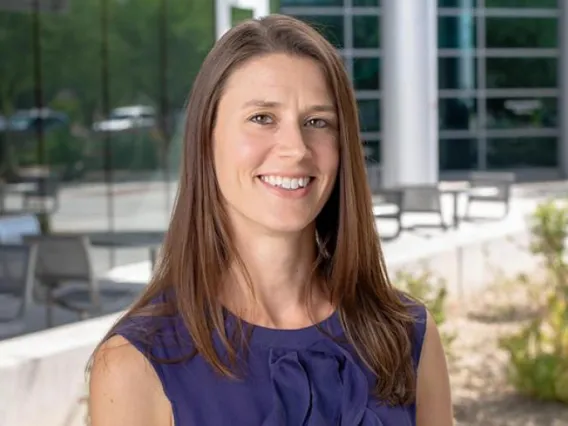CMIH Research
A major focus of the Center for Management Innovations in Healthcare is to catalyze, support and expand interdisciplinary research in healthcare management within the Eller College of Management and in partnership with other faculty at the University of Arizona and beyond.
Faculty with current research programs in the healthcare field form the initial core of the research efforts, with the expectation that additional faculty will be identified and/or recruited.
Current areas of research for CMIH faculty include:
- Healthcare informatics and analytics
- Health economics and applied econometrics
- Incentive systems
- Hospital accounting
- Workplace health initiatives
Center-funded Research

Aleksander P.J. Ellis
Stephen P. Robbins Chair in Organizational Behavior
Research Director, Center for Leadership Ethics
Department of Management and Organizations
Research Topic: Bringing Surgical Teams Together: Examining the Effects of Dangerous Surgical Procedures on Team Cohesion and Trust

Tiemen Wotersen
Professor of Economics
Department of Economics
Research Topic: Avoidable Mortality: The Mediating Role of Communication in Health IT

Junming Yin
Assistant Professor of Management Information Systems
Department of Management Information Systems
Research Topic: Genome-Wide Association Studies of Dynamic Complex Traits by Time-Varying Group Sparse Additive Model

Alice Bonaime
Associate Professor of Finance
Department of Finance
Research Topic: Alice Bonaime along with Emma Wang ’20 PhD, received a grant from the Center for Management Innovations in Healthcare to research the net effect that pharmaceutical mergers have on both price and innovation in the industry.
Read the full article here.
Interdisciplinary Research
A major focus of the Center for Management Innovations in Healthcare is to catalyze, support, and expand interdisciplinary research in healthcare management, both within the Eller College of Management and in partnership with other programs at the University of Arizona and beyond.
Faculty with current research programs in the healthcare field form the initial core of the research efforts, with the expectation that additional faculty will be identified and/or recruited.
Current areas of research focus include:
- Healthcare organization structure and governance
- Health economics and applied econometrics
- Incentive systems
- Hospital accounting
- Information systems
Faculty Research Videos
Eller faculty are actively involved in healthcare management and related research, and present on that research at Eller interdisciplinary research workshops and other events.
View All Faculty Research Videos
Faculty Research Spotlights
January 15, 2018
Compassion practices are creative ways for an employer to recognize and reward workplace care and consideration. Employees may be recognized for compassion towards customers and patients as well as fellow nurses. Compassion practices also include support sessions for employees who are dealing with traumatic incidents in their lives. Allison Gabriel, an assistant professor in the UA’s Eller College of Management and a faculty member affiliated with the Center for Management Innovations in Healthcare, researched how compassion practices can be applied in the field of nursing and, as a result, increase both nurse well-being and patient experience.
Gabriel, along with her co-authors from Virginia Commonwealth University, surveyed 177 ambulatory nurses from 30 different ambulatory clinics affiliated with an academic medical center. Additionally, they received data from 3,525 adult patients from those ambulatory clinics to gauge the effect that compassion practices had on how patients perceived their care. Two hypotheses that the researchers tested were whether compassion practices had a significant relationship with the emotional exhaustion and psychological vitality of nurses and whether compassion practices had a positive effect on patient experience ratings.
Results of the research show that compassion practices were positively associated with nurse well-being and how patients perceived their care. That is, compassion practices had a significant effect on mitigating emotional exhaustion and increasing psychological vitality for the ambulatory nurses. Moving forward, ambulatory care centers have an opportunity to increase both nurse well-being and patient experience in a way that can be revenue positive as well. Research shows that creating a positive patient experience can lead to positive financial outcomes. Additionally, compassion practices give administrators that lack financial resources an opportunity to utilize a low-cost option for providing a more positive workplace and a higher level of care.
Future research on compassion practices will be able to take the data collected in this study and use a similar framework for different delivery systems, such as long-term care facilities or home health agencies. The research Gabriel is doing to improve the healthcare experience, both from the provider and patient side, is an important part of transforming our healthcare system. More information regarding Gabriel's research can be found in the Research Report done by the Eller College.
October 19, 2017
The Center for Management Innovations in Healthcare is excited to provide grant support for a research project by marketing professor Martin Reimann, Assistant Professor in the UA’s Eller College of Management and faculty affiliated with the Center. Applying new ideas from both marketing research and work on decision making, the project is investigating how doctors can better frame cancer prevention recommendations so that at-risk populations are more likely to act on the advice given to them. Such recommendations have not been as effective as they could be and health researchers and practitioners are searching for new ways to help people follow cancer prevention advice.
The current hypothesis is that, counter-intuitively, many at-risk populations do not follow doctors’ cancer prevention advice because of the negative perceptions and experiences associated with cancer. In previous decision-making research, studies have shown that people are more likely to make risk-averse choices when dealing with negative experiences. For example, a patient may delay surgery after hearing about the possible side effects because of the negative experience associated with side effects. This psychological phenomenon has been summarized under what Reimann and colleagues call “Experience Theory” and it is the backbone of Professor Reimann’s new study.
To test what sorts of framing techniques doctors could use to achieve better outcomes regarding cancer prevention advice, Martin Reimann is using neuroimaging to see how people react to different decision frames. Various parts of the brain are expected to be active when different experiences are triggered. Those results will help to narrow down those frames that are potentially best suited to most effectively communicate cancer prevention advice. This project attempts to utilize framing techniques more commonly used within the marketing discipline and combine them with functional neuroimaging to ultimately help doctors get at-risk populations to adhere to crucial cancer prevention recommendations.
The results of the study will hopefully show doctors more effective ways to frame their cancer prevention recommendations so that patients do not see them as a negative experience. The Center for Management Innovations in Healthcare is proud to support Martin Reimann’s commitment to finding new solutions to one of healthcare’s biggest issues.

